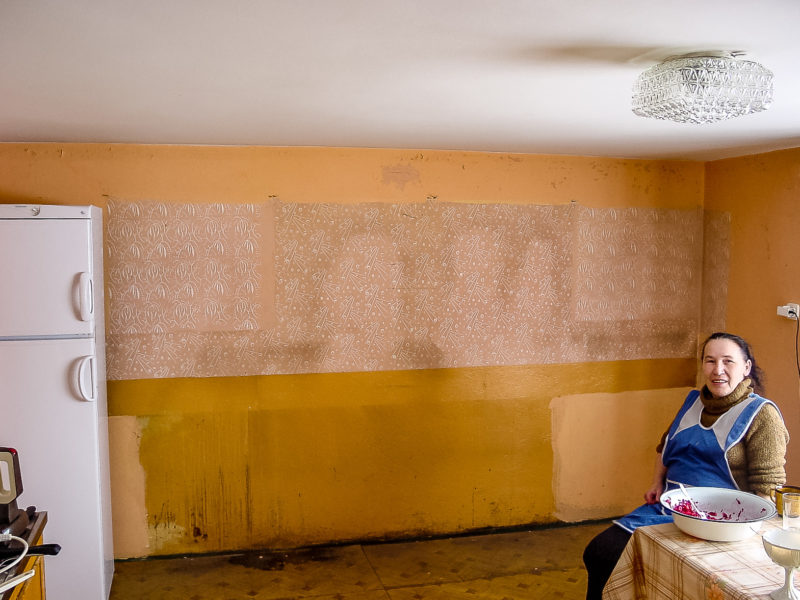
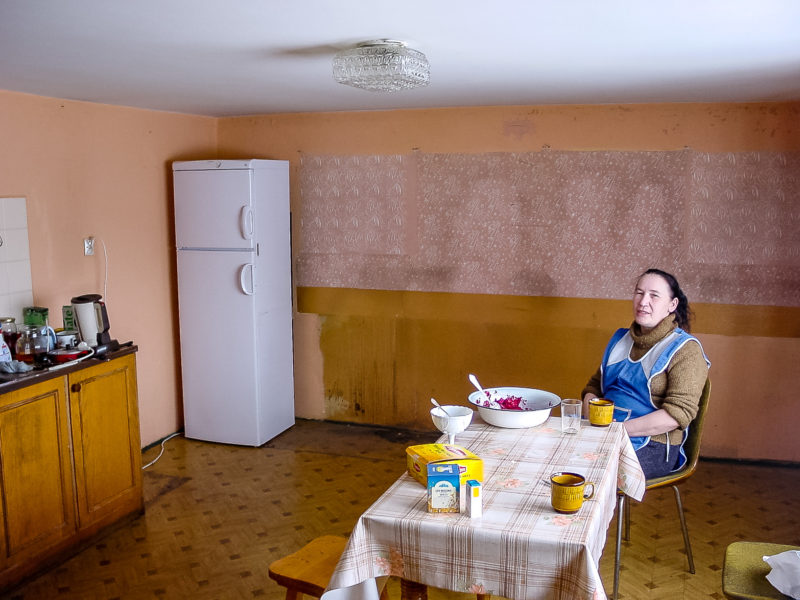
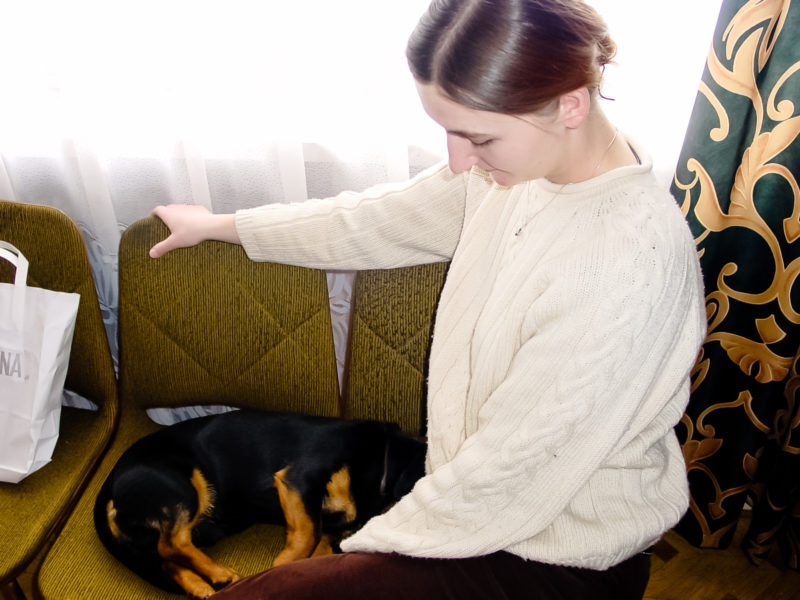
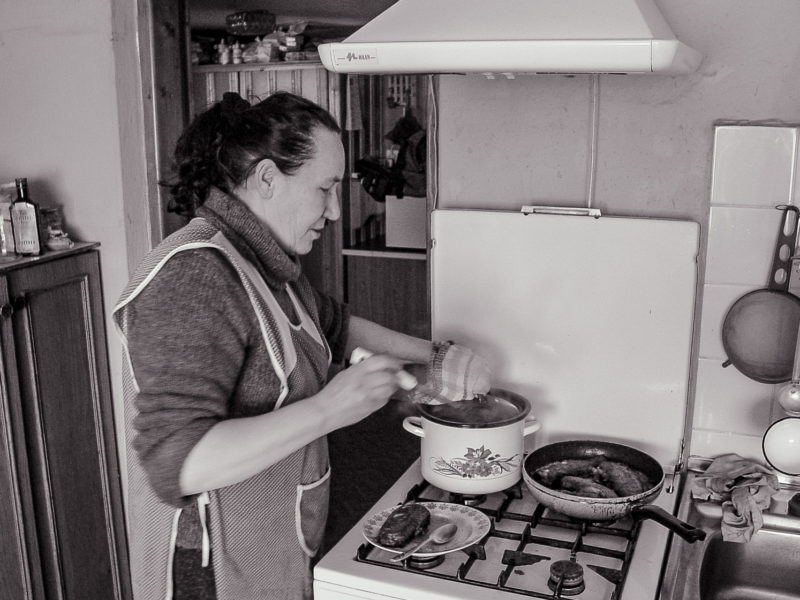
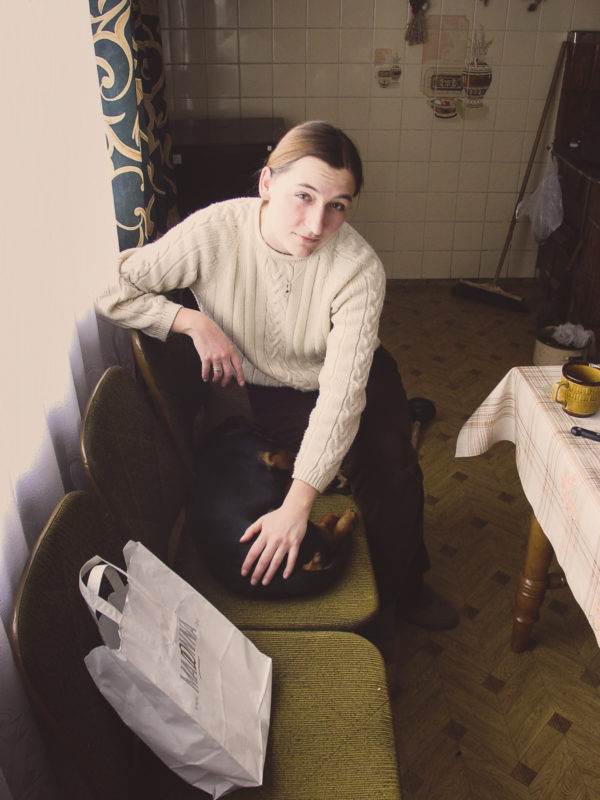
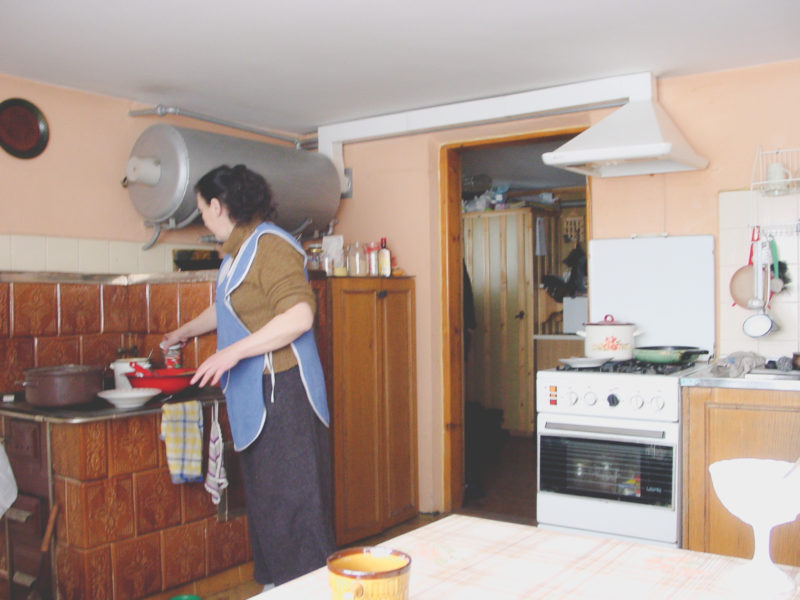






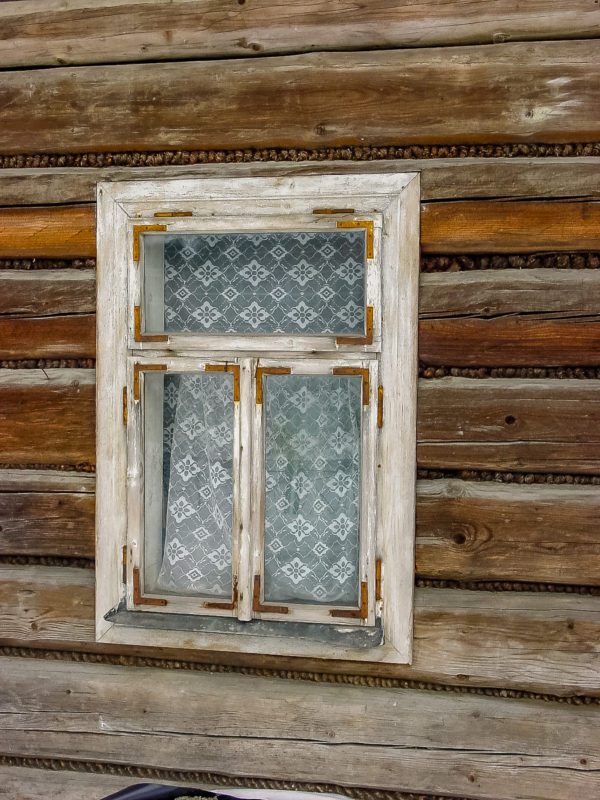
We went to talk to the vicar that night, and everything is okay, it seems. In the end, we decided to have the civil ceremony as soon as possible, which will accomplish a few things. First of all, it will be added incentive, the priest said, for the curia to approve quickly the mixed marriage, because we’ll technically already be married. Second, we won’t have to make the public declaration three months before the wedding, which gives us a little more leeway. And lastly, though he didn’t say it, it will save him a bit of work.

The surprise came at the end of the end. First of all, he didn’t accept any money. Well, not then. He said, “No, no, just wait until I’ve done something! Wait until we have all the documents signed from the curia!” And at end, he was very reassuring, actually. He told us that in the end, there’s nothing that can’t be arranged, and that the most important thing was that we love each other completely and that everything else will work itself out.

Yesterday I meet Łysy on the way to Jabłonka and we went for a beer. He told me what those six magic letters before people’s name really stand for: mgr inż = “Można gówno robić i nieżle żyć”
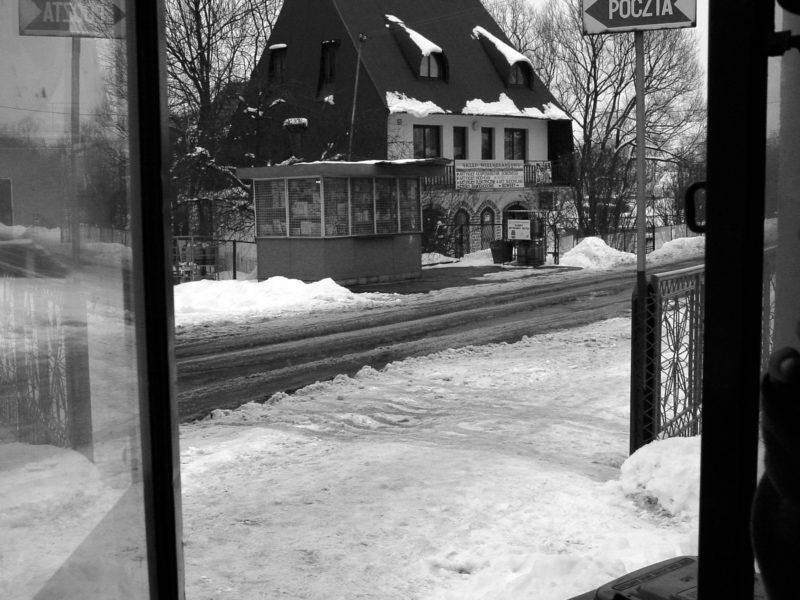
And that’s about all I have to write now. I’m not writing so much lately because this stupid keyboard makes typing like riding with a flat tire — like the time I rode back from Slovakia and pumped up my tire every few kilometers.
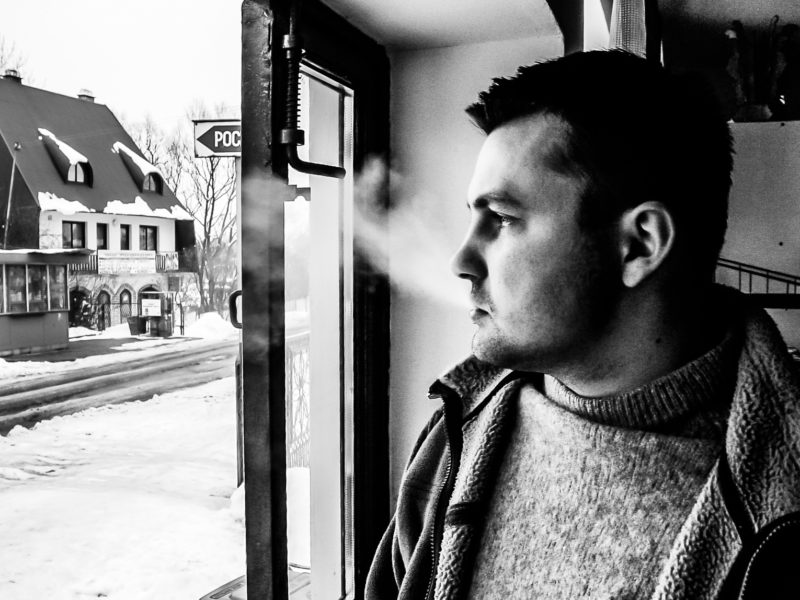



The headaches of this wedding are never-ending. Kinga talked to the main priest in Jabłonka and he wasn’t too happy about the recent developments. The 26th is, in fact, some stupid holiday in Jabłonka and he’s reluctant to let us marry that day.
I swear, what is it with priests in Orawa and their unwillingness to serve? They seem to be the most self-centered, arrogant, asses I’ve ever met. Of course, that excludes the ones here — for the time being — but only because I’ve never had to deal with them on any official basis, which of course might very well change.
What a pain in the ass.
The wedding will not be in Orawka. The priest found out how much more (paper) work is involved in a mixed marriage and decided he didn’t want to give of his time to help us. He was very rude, Kinga said — gave her his decision in a single sentence, said goodbye, and hung up, not waiting for her response.
Very Christian.
And people wonder why I’m not a Christian. If it’s true, and Jesus lives in you and all that nonsense, then why don’t we see an effect? Why is the country where something like 97+% of the population professes to be Christian one of the most corrupt in Europe? Why are the rudest, most selfish people those who serve a boss who supposedly gave his life for them?
 p
p

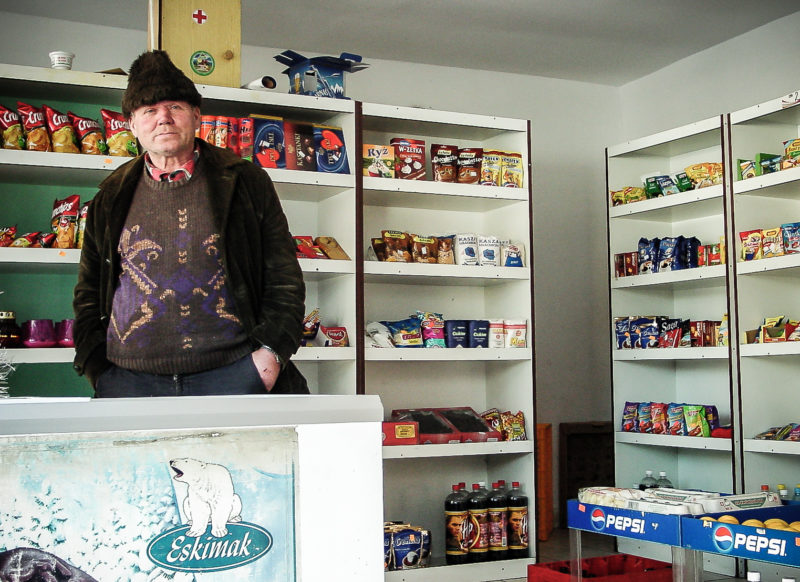

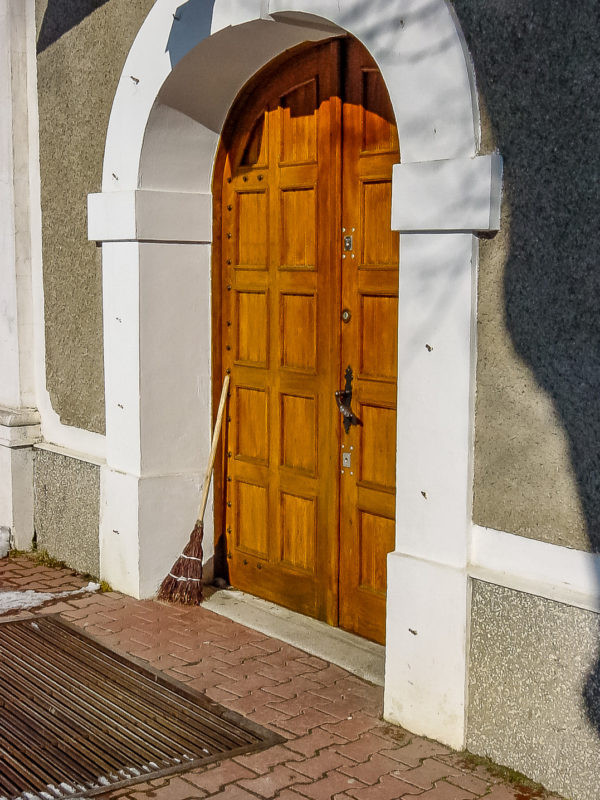


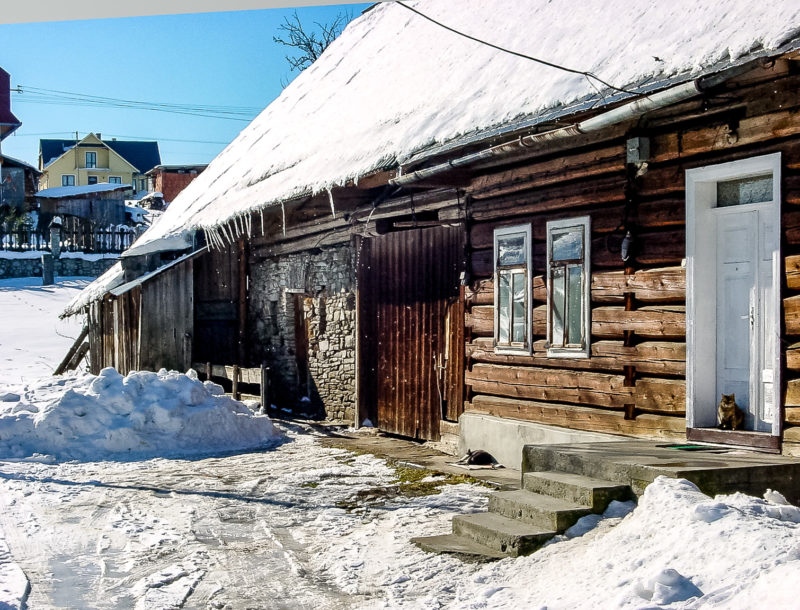



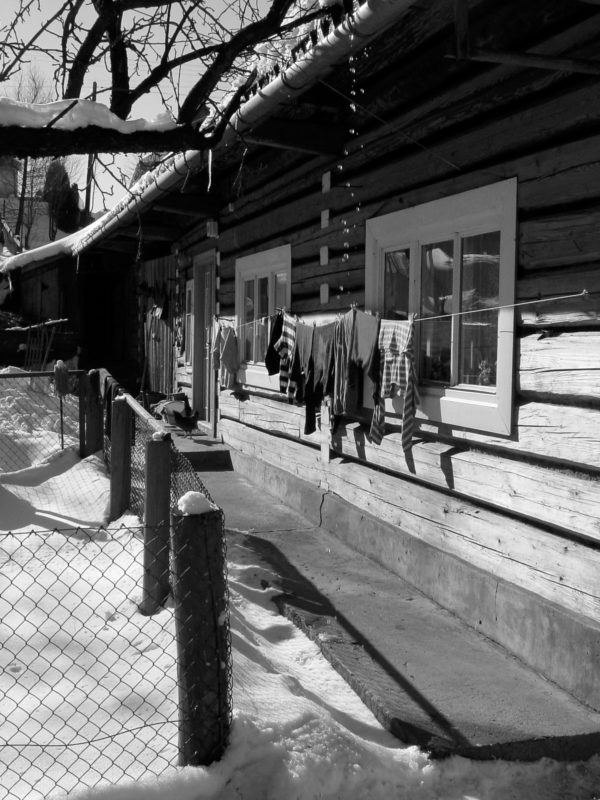





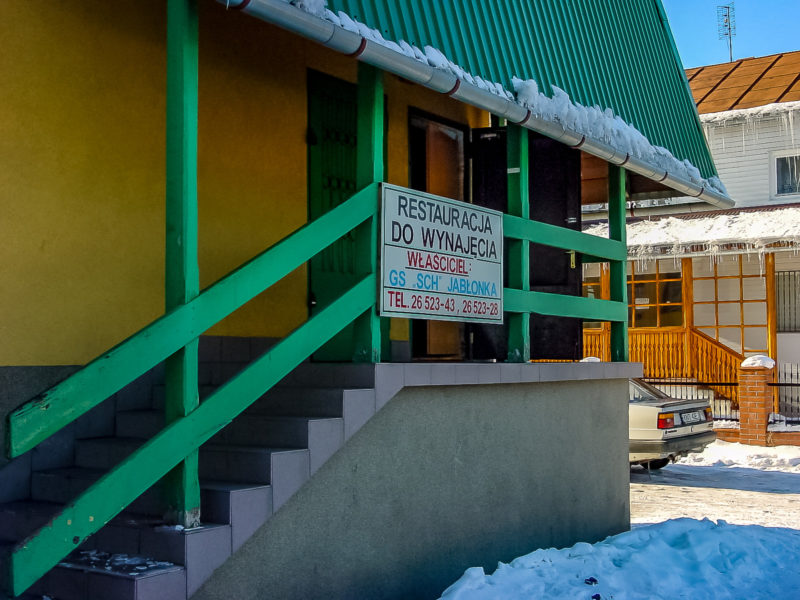

Peter Kreeft was talking at KC about the logical impossibility of religious pluralism, that all religions are true. “Either Mohammed was a prophet of God or he wasn’t,” he reasoned. I find it increasingly difficult to believe that he said that. As a Catholic, he believes, for example, that even though the host looks like bread, tastes like bread, feels like bread, and would be shown under scientific tests still to be bread, that it’s actually the body and blood of Jesus. That Jesus can be completely two different things.
It’s a question of faith, and I read an article on a Catholic website that took this even one step further. The author argued that only Jesus’ disciples — those who believed — could have seen him after his resurrection. In other words, if Jesus had appeared before Pilate, Pilate wouldn’t have seen him because he didn’t believe. That sounds suspiciously like willful self-deception.
Recall that Pieper writes that the chief obstacle to belief is the question, “Why should man be dependent upon information which he himself could never find and which, even if found, is not susceptible to rational examination?” Exposure to religion is a cultural experience, and it’s not something various individuals have independently worked out as they tried to figure out what this weird Unknown is that they’ve been experiencing. In other words, the seed is sown by cultural exposure to the idea of a crucified and risen god.
I wonder why that Franciscan bloke never wrote back. Perhaps he didn’t receive the email? Perhaps he thinks there’s no point? Perhaps he realizes that there’s no hope for me?
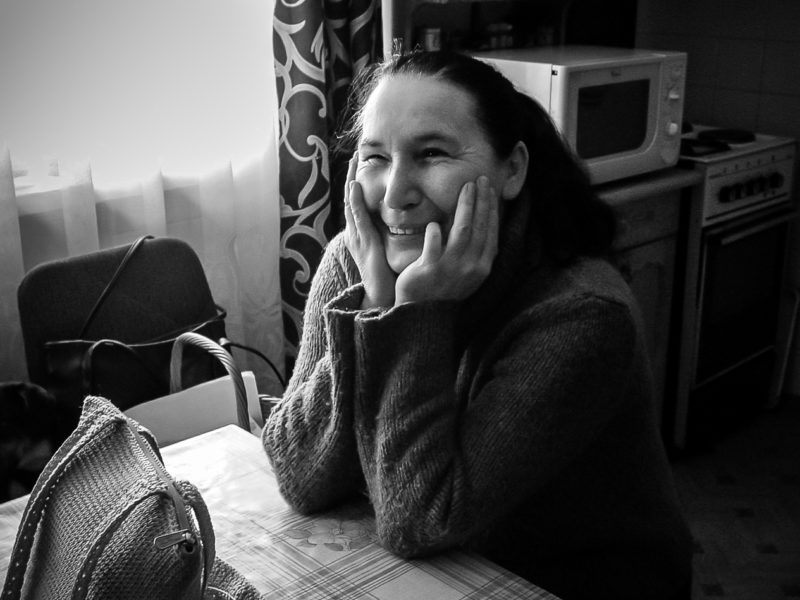
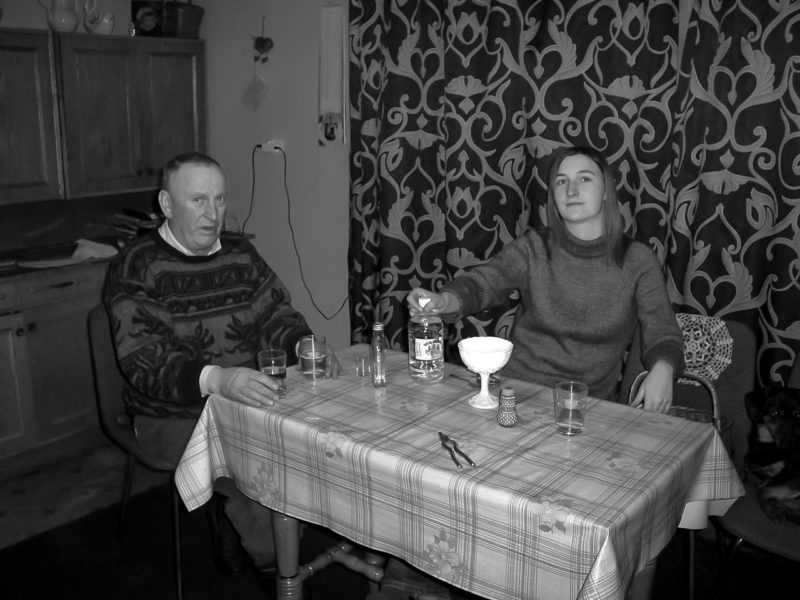
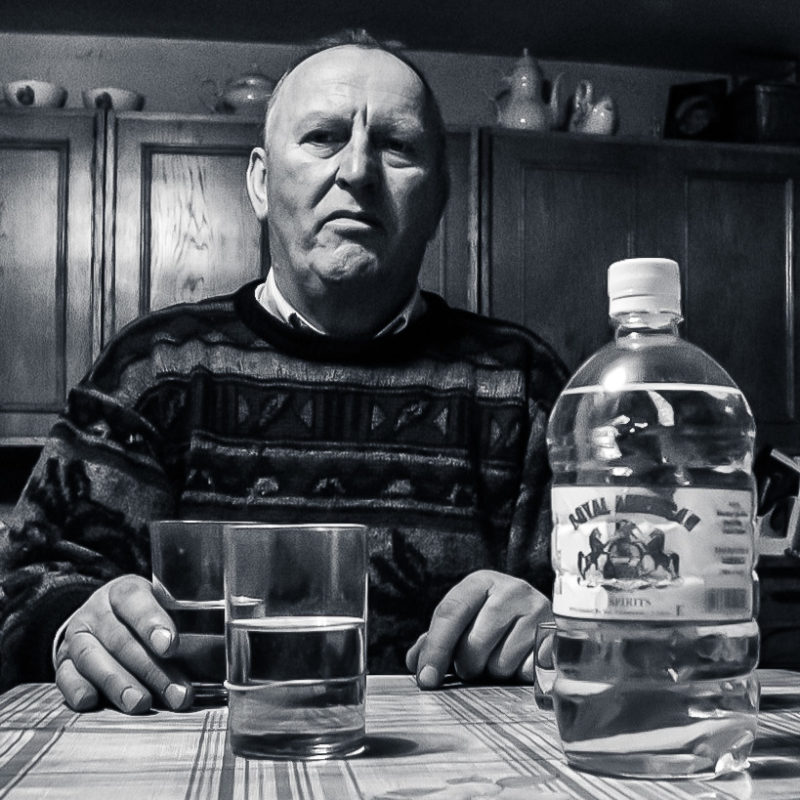
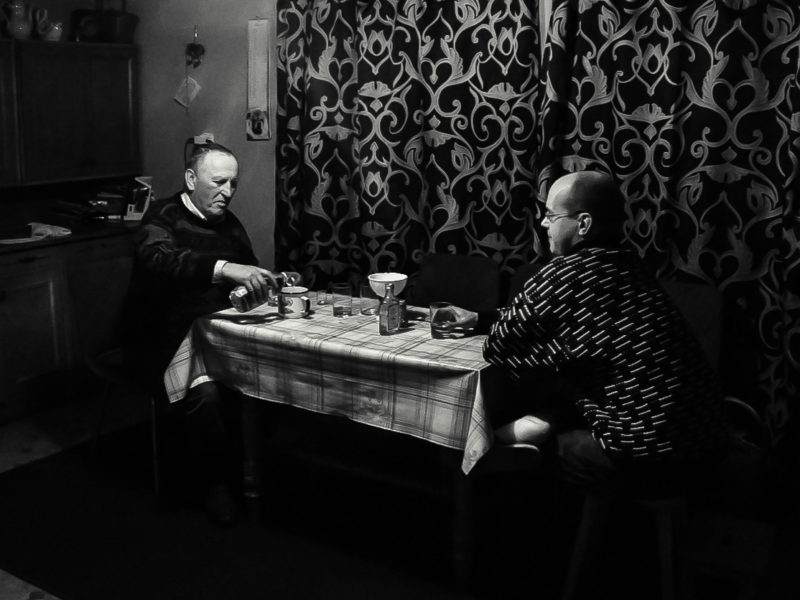
I recently bit the cliche bullet and bought a cell phone. It was a question of necessity — having no phone in my apartment, I really had no choice if I wanted any contact at all with the outside world.
A summary of the plans I was offered:
| Plan | “Free” minutes | “Free” SMS’s | Price |
|---|---|---|---|
| Plus 20 | 10 | 10 | 30.50 zł |
| Plus 40 | 20 | 20 | 42.70 zł |
| Plus 60 | 30 | 30 | 54.90 zł |
| Plus 100 | 50 | 50 | 79.30 zł |
| Plus 200 | 100 | 100 | 128.10 zł |
| Plus 400 | 200 | 200 | 225.70 zł |
So I was wrong — it wasn’t ten złoty for ten minutes. If only. (Prices include the value added tax.)
Take a look at that first plan: that’s 3.05 złoty per minute! And you get a whopping ten of them for that price. Super! “Buy this cell phone plan and you get one free conversation a month!”
Who in the States would pay $3.05 per minute for a cell phone!?! Who in France would pay €3.05 per minute for a cell phone? What would the public reaction be to such a wonderful, generous offer?
Sitting there across the desk from the squeaky-clean young salesman who looked to be all of twenty-one, I just started laughing and said, “I’m sorry, but these ‘offers’ are simply absurd. They’re jokes.”
The reason he gave was simple: of every złPlus GSM (the cell phone company in question) gets, they have to pay TKP, the only phone company in Poland (read: monopoly) either 60 or 80 groszy (I can’t remember which, though I’m fairly sure it was “only” 60.) Even though Plus GSM is an independently owned company. What do we call that, boys and girls? Mafia? Extortion?
Of course the government is trying to do all it can to stop this, especially considering the fact that TKP is state-owned. They’re doing all they can to divest the state of ownership. And stop fleecing the Polish public? Yeah, whatever.
Still, I’m not sure I buy young Mr. Squeaky’s argument. So they have to give 60% of their income to TKP — so what? Cell phone systems don’t have lines they have to maintain. They don’t have big switching buildings. And Plus GSM doesn’t really have a lot of offices. It’s 60 grosz per dollar, not per minute (as it was explained to me), so that has no effect on the price per minute, simply on the company’s net earnings. Giving 60% of their profits to the government is a sorry excuse for not offering a better plan.
All of this simply makes me realize anew how much better some things are in the States. Regardless of how they got better (a fraction of the world’s population taking the lion’s share of the resources — true of the West in general, I realize), the fact is, Americans economically have it better than most people even in Western Europe.
| When I originally wrote this, gas cost about 3.50 złoty a liter. Upon entry into the EU, it jumped, within a matter of two or three weeks, to 3.90 a liter. |
An excellent example of this is gas. I’ve no idea what the price of gas is in the States these days, but I’d hazard a guess that even if it’s “ridiculously expensive,” it’s not even close to $2.00 a gallon. Here, gas costs about 3.90 złoty a liter. That would be almost 12 złoty a gallon. Remember — an average monthly salary in Poland is about 1,500 złoty. Converting the sum directly to dollars (i.e., $1,500), that’s a lower-middle class income, which means the buying power of a złoty for me here in Poland would be the same as the buying power of a dollar in the States. All that being said, imagine if the price of gas jumped up to an equivalent level? What would happen? What would be the general public reaction to having to pay over $100 (at $12 a gallon) to fill up your car?
Compact discs provide another excellent example. To determine the price of a CD in Poland, take the price in America, find out the dollar/złoty exchange rate, and convert the price to z?oty. Simple. In other words, CDs here cost about 60.00 złoty. How many CDs would you own if each one cost $60?
| Entry into the EU has indeed caused the prices to go up, but it is taking a bit longer than expected. |
Entry into the European Union in about seven months is supposed to make prices go up even further. A pack of cigarettes now costs about 5.00 zł (depending on the brand — that’s an estimated average) and rumor has it that the price will double come May.
This has me particularly worried because, though I only rarely smoke a cigarette while having a beer, I do enjoy a pipe. My favorite pipe tobacco, Dunhill’s “My Mixture 965,” already costs a fortune: 33 złoty for 50 grams. If that doubles too, then I might find myself out of a hobby. (And all the better for it, I’m sure some might say.)
Just before Christmas, I sent a letter to “Ask a Franciscan” on a Catholic website. I’m not sure why. Silly thoughts of conversion that I’ve since (or rather “sense”) put aside. The original letter:
I’m an American living in Poland, and I’ve been thinking about conversion lately. A lot of it has to do with the fact that I’m marrying a Polish woman in a few months (June) and everyone is asking me why I don’t convert. “It’s simple,” I say. “I don’t believe.”
However, I can’t deny a certain pull I feel toward Catholicism – the ritual and the beauty of the faith. I’m an atheist, though, and for more intellectual reasons than anything else. I don’t know that I could ever say, “I believe this faith is true,” but I’m finding myself thinking sometimes, “It would be nice if this is true.” Or even, “I hope this is true.”
So the question is this: is it enough simply to say, “I hope these things are true?” Where does hope that something is true end and faith that it is true begin?
The response:
Thanks for writing and I do appreciate your honesty both intellectual and moral. The Catholic Church has a very strong teaching that a person’s conscience is the ultimate criteria for that person’s decisions and behavior. At the same time, it is important that the conscience be correctly and well formed.
You are correct. You could not be true to yourself if you said, “Well, I just pretend I believe, go through the motions.” You could not do that nor would any real church want you to do that.
At the same time, it might help if I explore the idea of faith just a little bit with you. As Catholics, we believe faith “is a gift” of God…..and that that gift is offered to every person. The reason it is a gift is that faith means that we believe in what we cannot see or fully understand.
Yet, from a purely human point of view, you and I live by faith every day. You believe that when you shop for food, the labels on the cans say what they mean. You don’t have to presume to have every can tested “just to make sure because you never know.”
In fact, society is based on truth for its people. That’s why perjury is such a terrible crime….if a person lies under oath, then there is no way for true justice to be accomplished. No one could trust anyone any more and society would be thrown into chaos.
When it comes to religious truth, we are dealing with great and unfathomable mysteries. But one thing to keep in mind is that a mystery is not something about we know nothing; it’s really something about which we just don’t know EVERYTHING. I’m sure the deepest human mystery you’ve experienced is your love for your fiancé and her love for you. You know what that is but still I’m sure you stand back at times and realize that “this love is bigger than the both of us.” When a mother and father hold their first child, they are stunned by what they hold in their arms and what they feel and experience may not be able to be put into words. In fact, some of our deepest experiences deal with the mysteries of life and death and of our human relationships.
In regard to faith and religion, there are three questions that come to mind:
- Where did I come from?
- Where am I going?
- What am I doing in the meantime?
In a way, the way I answer those question will determine to a very high degree the way I live my life and for that matter why I even care about how I live my life. If I say, “I came from pure chance out of nothing; in time (who knows when) I will go back into nothing; in the meantime I’ll just do what I think is right.” Those are questions, though filled with mystery, are questions your fiancé comes up with a different answer. And perhaps the best way to see what faith is, is to look at it in another person whom you love and admire. What is it that you love the most? She beautiful, loveable, and all those good things. But is there something inside her, her values, her convictions and her beliefs that make you wonder, “Why does she believe the very things I can’t make sense of?” When my Dad married my Mom in 1930, my Mom was an Irish Catholic and she jus his heart. He was a faithful man and he was an inspiration to me and my sister.
So, what I would suggest is that you ask your fiancé just for the opportunity to explore her faith, take instructions and see how it turns out. If after you are finished you are still where you are, then you have in good faith explored the faith and found it lacking. On the other hand, you never know what will happen. It’s still your conscience and you must follow it. I know your fiancé would not want you to pretend.
I liked your expression, “I hope this is true.” But the hope might well turn into faith in time as you learn more about our faith. Remember also, you don’t have to figure out everything…what you are looking for is an understanding of our view of those three questions. What from; Where to; What now?
I do hope this helps. And remember Gary, if you have any more question or issues, please feel free to write back. I’m the only one who answers on this website and I’ll remember your name.
And so after almost six weeks, I took him up on the offer and wrote this back — a desperate effort, I suppose.
Thanks for your answer to my question. I’ve been meaning to write back, but I’ve simply been too busy. And also, I’ve been working on this reply for some time — a little here, a little there.
I didn’t initially tell you the whole story, because I wanted it to be short. The thing is, I was raised in a Christian home; I studied at a private Christian college; I did a year of graduate work in philosophy of religion at Boston University; and I’m constantly obsessed with religion and theology. I’ve read Aquinas, Augustine, and Pieper among the Catholic “greats” and Luther, Niebur, Bonhoffer (sp?), and Calvin among the Protestant “greats.”
This is not to try to brag — “Oh, I’m so well read.” I know in fact I’ve barely scraped the surface. It’s simply to show that, as far as taking instruction, in some ways I don’t need it. To a certain degree, I know more about the Catholic Church and theology than my fiancé does. That sounds a little presumptuous, but she’s even told me, “You know the Bible and theology better than I do!”
I say that in response to your comment that you suggested I “ask [my] fiancé just for the opportunity to explore her faith, take instructions and see how it turns out.” Lately, I’ve read a great deal about Catholicism, its history, theology, etc. I’m currently working my way through The City of God (slow going and I only read a few chapters every few days) as well as Przekroczyć Próg Nadziei, which is the Polish translation of “Crossing the Threshold of Hope.” (I would say it’s probably not a translation in reality, since, as I understand it, John Paul writes his encyclicals and such in Polish and then others translate it into Latin and Italian.) I’ve gone from knowing little about Catholicism to knowing quite a bit, from regarding it as essentially misled (the old Protestant upbringing still lingered/lingers in me though I have considered myself a complete non-believer for years now) to having a great deal of respect of many of its teachings.
In fact, I would even say (and have said, to my fiancé, Kinga, and her family) that if I ever “re-converted,” I would be a Catholic. Indeed, I’ve even defended the Church’s theology to fundamentalist, anti-Catholics! You might say I’m the ultimate debater, able to argue positions I don’t even believe. (To be fair, I wasn’t misrepresenting myself and saying I believed any of it; I was simply arguing that these fundamentalists were misrepresenting the Church and her teachings).
All this is not to brag or anything, simply to show you where I’m coming from. I’m cerebral to the point of — well, I don’t know what. I think too much, I’ve been told; I’m a “classic intellectual,” Kinga says. She wasn’t the first to say that! That always sounded corny to me and I resisted the label, but perhaps everyone’s right. Two examples perhaps further illustrate this: First, and somewhat amusingly, I was voted the “Most Intellectual” senior superlative in high school. Secondly and more of an indictment, in college I went to the school counselor for a while after the unexpected dissolution of a close friendship, and with her help I came to the realization that even with feelings, I think. I think first — analyzing the feeling — and “feel” later!
So, all that out of the way, you see that the issue for me is — an intellectual issue, in short.
You wrote, “Remember also, you don’t have to figure out everything. What you are looking for is an understanding of our view of those three questions. What from; Where to; What now?” I wonder. The thing is, I never think about those things. Honestly. Well, I should rephrase that — I never think of the first two questions. The third — well, we’ll get to that.
Regarding the first question, it’s always dumbfounded me that people can get so upset about the thought, for example, of evolution. “I did NOT evolve from monkeys!” some cry, as if suggesting that somehow affects their self-worth now. My point of view is this: my self-worth comes from me. That’s why it’s called “self-worth.” I don’t see how the prospect of “coming from monkeys” makes me any less valuable or any less human.
It seems we can’t conclusively answer the first. Even if we say we’re created by God, that doesn’t fully answer the question, for the specter of evolution and the “how’s” of it all still linger, with their shadowy, intellectual implications.
The same goes for the second question: where am I going? Again, I can’t conclusively answer that, and neither can anyone else. (What I mean by “conclusively” is “empirically provable,” I suppose.) That is more of a question of faith than the first question, it seems to me.
More important I would say is the third: What am I doing in the meantime? Good question. But the more I think about it, the more I’m convinced that it’s less what we believe and more what we do.
An improbable scenario: You’re a father, and in the country in which you live, it’s customary for the father to grant permission for the son to live beyond age eighteen. In making your decision, would you really say, “I’m afraid I’ll have to banish you or kill you, son, because you didn’t believe this or that?” Would you even take into consideration what he believes? For that matter, unless he’d committed some atrocious act — say, killing your wife, his mother — would you even consider what he’d done? And in the end, if you had to base the decision on one or the other, which would you chose? Belief or action?
Now of course, this improbable scenario is doubly so because it’s probably a false dichotomy. Neither actions nor beliefs would really come into the picture if you truly loved your son, right? You would want to say even if he’d killed a thousand innocent children, “Well, I don’t want to see him die.”
God — and I’m assuming here he/she/it (and if God is God, I don’t think any of those pronouns do justice) — is supposed to be the ultimate father. In fact, that’s what Freurbach suggested in the nineteenth century, if you recall: God is the projection of our ultimate, perfect father figure. (One of the best books I’ve ever ready is Peter Berger’s A Rumor of Angels, in which he says basically, “Even if God is a projection, atheism/the non-existence of God doesn’t necessarily follow from that premise.”) So if God is only as good as a human father, it seems fear of missing out on some eternal bliss is unfounded, that God would give us chance after chance, opportunity after opportunity.
So part of me is thinking, “What am I even considering this stuff? If God exists, he will certainly take care of me in spite of all my shortcomings and intellectual pride.”
You wrote, “At the same time, it might help if I explore the idea of faith just a little bit with you. As Catholics, we believe faith ‘is a gift’ of God…..and that that gift is offered to every person.” But how does one know that faith is from God and not simply wishful thinking? Self-deception?
One of the most useful and fruitful ways of looking at religion secularly is through the eyes of sociology, and one thing that sociology points out is the importance of plausibility structures: those things that make it easier for us to say, “I believe this.” For example, not many inhabitants of New York City believe in voodoo because there’s not support for it; in Haiti, there’s significantly more plausibility structures. Among the things that serve as a plausibility structure is Mass and the congregational recital of the various prayers. It’s visible and audible backing for our own beliefs. “What I believe isn’t so crazy! How can it be if all these other people believe it too?” Such might be an explanation of how plausibility structures work. (Forgive me if you’re well versed in all this.)
So where does this leave us? Faith in our faith? Faith that our faith is faith in God and not a form of willful self-delusion?
It seems to me faith is a faith in experience — something that happens, which some interpret as being from God. It’s not ultimately a question of logical proofs. It’s a question of experience.
Yet I lack that experience. I’ve never had anything happen that makes me think, “Undoubtedly this is from God.”
And yet I know that going to look for that experience means I’ll find it. It reminds me of what one of my professors said about Biblical interpretation: if you go to the Bible expecting to find something specific there — proof of this or that — no matter how ridiculous it is, you’ll find it. The proof of this is all the Protestant sects that derive the most bizarre beliefs out of the Bible because of their poor exegesis.
But it just brings us back to the willful self-deception question. As the devil says to Ivan in The Brothers Karamazov (probably the best novel ever written in my opinion), “What’s the good of believing against your will? Besides, proof is no help to believing, especially material proof. Thomas believed, not because he saw Christ risen, but because he wanted to believe, before he saw.”
And I’m also reminded of Kirkergaard in Fear and Trembling: “Faith begins precisely where thinking leaves off.”
And Josef Pieper in Belief and Faith: “The obstacle [to religious belief] which must be leaped rather than climbed consists in the difficulty of understanding why man’s nature and situation should be such that he cannot make do with what is naturally accessible to him. Why should man be dependent upon information which he himself could never find and which, even if found, is not susceptible to rational examination?”
So why the draw? Why did I even contact you in the first place? Why am I thinking these things which a year ago — less, even — I would have brushed aside as silliness?
The only answer I can come up with now is ritual. I go to Mass with Kinga, my fiancé, occasionally (only occasionally because we live in different villages), and I find the ritual of it all very enchanting. Hardly a reason to consider conversion, I know. And as I said, the idea is something I sort of hope is true at some level, but which I highly doubt is true
And it seems to me that no matter what I do, it would ultimately be an intellectual game for me. Or an intellectual exercise. A continual effort to justify rationally why I’m trying to believe the things I am, or even more remotely, why I want to try to believe.
All this is why I originally wrote, “I don’t know that I could ever say, ‘I believe this faith is true,’ but I’m finding myself thinking sometimes [. . .] ‘I hope this is true.’” I suppose in asking if that was enough I was more asking from a church law point of view (to which I knew the answer — don’t know why I asked) than a moral/philosophical point of view.
I could go on, but what for? I’ve already turned myself into so many mental knots that it seems of little use, and would simply be a reiteration of what I’ve already ramble. I just thought I’d share a little more of the situation and my reaction to your response.
And the corresponding response? Well, there is none. Perhaps he didn’t get the letter, but why waste my time and risk looking like an idiot for something I don’t even believe?
And why did I even do all that? It’s like admitting I’m gay or something, but the truth is that on some level, I want to believe this nonsense. I’m convinced it’s just that, but I’m still trying. Why? That’s why I can’t figure out. Why can I logically list the reasons I don’t believe and the reasons I can’t ever believe and yet still want to believe? Childlike innocence I’m seeking in some ways. No, not innocence, but naivety.
There is no soul. Jesus apparently thought he was coming back before his disciples died and 2,000 years have passed. Religion arose from a lack of understanding of what happens to a person at death. All these things make sense. And the first two are virtually empirically provable. And yet.
After studniówka — I survived. It was actually pretty good. I had a decent time despite a somewhat troubled stomach.
I’m more and more distant from the kids each studniówka because I’m older and older. The age difference is now thirteen years. I was a little insecure junior high student when they were born.
In some ways I think next year would be better in that regard because I teach them all so much — four hours a week this year, and hopefully the same next. I know them better. And to be honest, I like them more. Or rather, I like more of them. There are fewer Magdas, Izas, big Pawełs (from 4b — don’t teach him anymore, thankfully, but it doesn’t change the fact that I don’t like him). But part of me thinks it’s just wishful thinking. And not even terribly “wishful.”
Kinga and I sat with Ramzes, Agata, Wiola, and Adam, and I really didn’t even talk to any of the other teachers. We sat at that secluded, elevated table and so I guess by that action, showed that we weren’t interested in talking to anyone else. Or at least that might have been how it was interpreted. Such is life. They’re more pleasant to talk to than most of the other teachers. Dorota and her husband weren’t there, so that lessened the number of teachers I would have even be interested in talking to significantly.
It’s been raining like crazy, meaning that all the snow is now slick, wet ice. Walking to school takes twice as long because you’re always fighting the ice.
School’s back in session. Other than having to get up at a specified time, I’m happy to be back. It gives me something to do, at any rate. Naturally, my throat is just as it always was. First lesson and it hurt.
Nothing else to write about except an observation that’s been bouncing around in my head for days now: a theatrical person is a person who constantly and consistently tries to communicate with facial and body language as much or more than with her (and it’s usually a woman, in my experience) words.